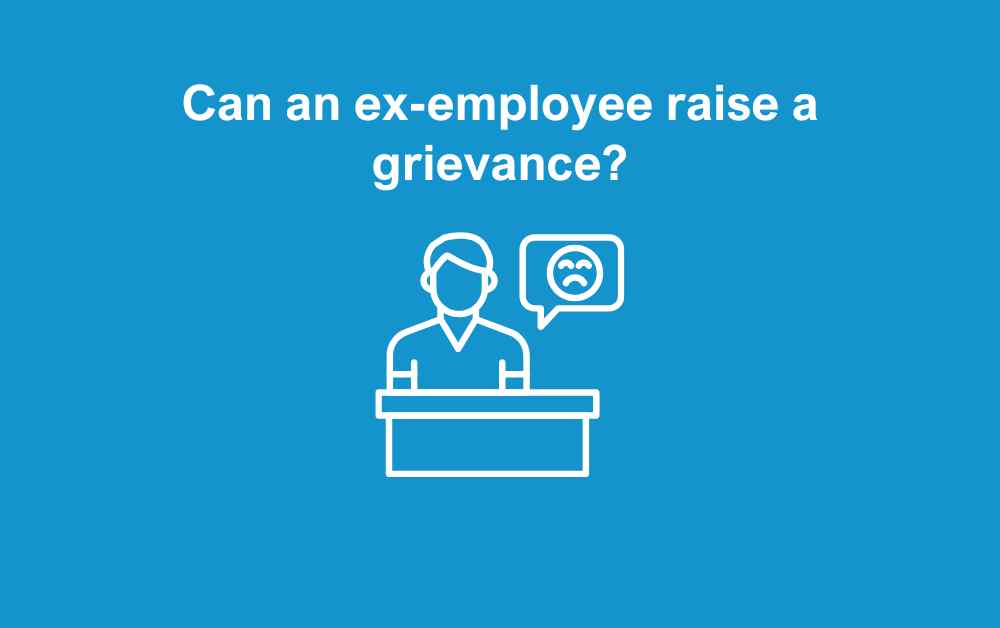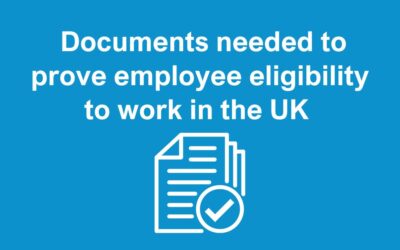One of the most asked questions we’ve been asked lately is Can an ex-employee raise a grievance?. This may feel overwhelming as when you expect to go through a grievance procedure, you may not imagine it to be an ex-employee. However, in some circumstances, we recommend to follow your usual grievance procedure.
Dealing with grievances from ex-employees can be challenging, but it’s important to address them properly to maintain a positive reputation for your company and ensure that any issues are resolved fairly.
In this blog, we’ll go over some steps you can take when responding to grievance from ex-employee in a professional and effective manner.
Can an ex-employee raise a grievance?
An ex-employee raising a grievance can be a challenging situation for employers. There is no legal requirement to deal with a grievance once someone has left the company. However, it is often advisable to follow your usual grievance procedure to help prevent the issue from escalating into a tribunal claim.
Ignoring a grievance could be seen as unreasonable, particularly if it involves serious allegations such as:
- Discrimination – Claims related to protected characteristics under the Equality Act 2010, such as race, gender, or disability.
- Bullying and Harassment – If the grievance includes claims of mistreatment that could be linked to a legal claim.
- Unfair or Constructive Dismissal – If the complaint relates to the circumstances of the employee’s departure, addressing it may help avoid a tribunal.
Handling a grievance from an ex-employee properly can have several benefits:
- Reducing the risk of legal action – Responding fairly can prevent the issue from escalating to an employment tribunal.
- Demonstrating fairness and professionalism – A well-handled grievance process shows that your business takes complaints seriously.
- Protecting your employer brand – Avoiding negative publicity and reputational damage.
If you choose to address the grievance, consider following these steps:
- Acknowledge the complaint and confirm whether you will investigate.
- Follow your normal grievance process as closely as possible.
- Conduct an investigation and gather relevant evidence.
- Hold a meeting if required, allowing the ex-employee to present their concerns.
- Provide a written outcome, explaining any decisions made.
- Offer an appeal process where appropriate.
Ultimately, while you are not legally obliged to deal with a grievance from a former employee, doing so can help protect your business from legal risks and ensure a fair and professional approach.
Don’t miss a step
Now that we’ve addressed the question, ‘can an ex-employee raise a grievance’, it’s now time to look at the steps further.
It’s important to measure the resources and time it may require to conduct a grievance investigation over the risk of a possible tribunal claim. If responding to grievance from ex-employee that may be serious enough to form a tribunal claim, you should deal with this correctly and even consider seeking professional advice. This will help you avoid having any inconsistencies in responses and increase your chances of defending a claim successfully.
Listen and understand the grievance
The first step in responding to a grievance from an ex-employee is to listen to what they have to say and try to understand their perspective. It’s essential to approach the situation with an open mind and avoid getting defensive or dismissive. Ask the ex-employee to explain their grievance in detail and take notes to ensure you have a clear understanding of their concerns.
Respond promptly
It’s essential that you respond promptly even if you don’t have a resolution yet. Acknowledge the receipt of their grievance and let them know that you’re taking the matter seriously. Provide a timeline for when you expect to have a resolution and keep them updated on any progress.
Take appropriate action
Based on the results of your investigation, take appropriate action to address the ex-employee’s grievance. This could involve offering compensation or other forms of restitution. You may also need to make changes to company policies or procedures to prevent similar issues happening in the future.
Follow Up
Once the issue has been resolved, follow up with the ex-employee to ensure they’re satisfied with the outcome. This will demonstrate that you take their concerns seriously and are committed to maintaining a positive relationship with them. Even after they’ve left the company.
Put steps in place to avoid this in the future
In an ideal world, you would already have known about your ex-employees issue before they left. It’s really good practice to promote open communication with all your employees and encourage them to talk to you about any issues they may have. This will ensure you can try to and resolve these issues before they become a real problem.
How Exit Interviews Can Help Prevent Future Grievances
An exit interview is a valuable opportunity to gain honest feedback from departing employees. By creating a safe space for them to share their experiences, you can identify potential workplace issues before they escalate into formal grievances.
Employees who leave with unresolved concerns may feel the need to take further action, whether by raising a complaint post-employment or sharing negative experiences elsewhere. This often raises the question: can an ex-employee raise a grievance? Handling such concerns appropriately is essential to maintaining a fair and professional workplace. A well-structured exit interview allows you to address any lingering issues, demonstrate that employee feedback is valued, and take proactive steps to improve workplace policies and culture.
By listening carefully and acting on key insights from exit interviews, businesses can reduce the likelihood of future disputes, protect their reputation, and foster a more positive work environment for current and future employees.
Of course, if an informal chat during employment or an exit interview doesn’t resolve concerns, then that’s what your grievance procedure is there for.







